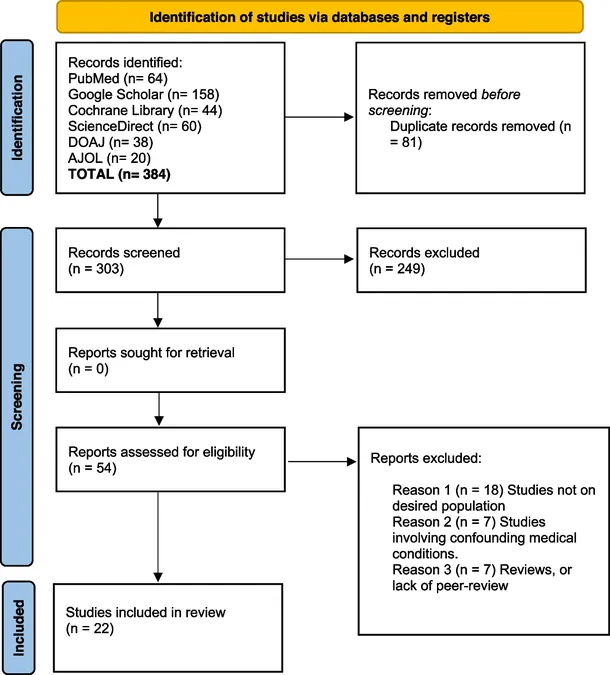
Shocking Statistics on Childhood Tuberculosis in Nigeria: A Wake-Up Call for Urgent Action!
2024-12-19
Author: Yu
Background
Tuberculosis (TB), primarily caused by the bacterium Mycobacterium tuberculosis, continues to be one of the leading infectious killers around the globe, claiming numerous lives, especially in children whose immune systems are still developing. In Nigeria, a country with one of the highest TB burdens, childhood cases remain critically underreported, resulting in a dire need for a clearer understanding of the disease's prevalence, characteristics, and treatment outcomes. This systematic review and meta-analysis aimed to encapsulate the current state of childhood tuberculosis in Nigeria, addressing gaps in knowledge and effectiveness of treatment measures.
Methodology
This extensive review involved a systematic search through various electronic databases to collate studies reporting on childhood TB in Nigeria, emphasizing methodology, diagnostic criteria, and treatment effectiveness. Utilizing a random-effects model for meta-analysis, the study calculated prevalence rates and treatment outcomes while assessing publication bias and statistical heterogeneity.
Key Findings
After analyzing 22 studies encompassing over 1.16 million children aged 0-18 years, the compelling results revealed a pooled prevalence of childhood TB at 20.82%—a staggering figure that underscores the health crisis at hand. Notably, pulmonary tuberculosis emerged as the most common form, accounting for approximately 62.70% of diagnoses, with diagnostic methods including sputum smear microscopy and innovative technologies like the GeneXpert MTB/RIF assays.
Despite the promising background of effective TB treatment, results showed an average treatment success rate of 75.47%, hindered by a concerning 11.40% of children lost to follow-up and an alarming 6.76% mortality rate. The specter of HIV co-infection looms large, adversely impacting treatment effectiveness and survival rates.
Comparative Global Context
Globally, TB continues to afflict children's health, with 10.6 million new cases in 2022, of which approximately 1.3 million were children. In Nigeria, TB remains a leading cause of mortality among children, accounting for roughly 9% of reported cases.
The vast disparities in prevalence across Nigeria's geopolitical zones profoundly reflect socio-economic factors that influence health outcomes, presenting a dismal picture that calls for more targeted public health interventions. High prevalence rates in regions with lower socio-economic standing amplify the call for urgent action.
Challenges and Implications
The study highlighted critical diagnostic challenges faced in accurately identifying TB in children, where clinical presentations often mimic other common childhood illnesses. Traditional diagnostic methods frequently fall short, particularly in young children incapable of producing sputum samples. This reality compels a reevaluation of existing diagnostic practices and underscores the necessity for increased training and resources among health practitioners.
Moreover, the findings signal an urgent need for integrated health systems that enhance the quality of care provided to these vulnerable populations. Increased collaboration among health policy-makers, community leaders, and healthcare providers is essential to eradicate this growing health crisis.
Conclusion
While promising treatment regimens exist and have been established, the ineffective outcomes and unreported cases illuminate the path ahead: Nigeria must ramp up efforts to address the significant incidence of childhood TB, implement robust screening programs, and raise awareness among healthcare workers and communities. Furthermore, increasing the accessibility of innovative diagnostic tools and forming alliances in healthcare sectors focused on pediatric tuberculosis are pivotal steps in turning the tide.
As the World Health Organization targets ambitious goals for TB management, Nigeria stands at a crossroads. The burden of childhood tuberculosis is a silent epidemic that demands immediate recognition and action. The time to confront this issue is now—before it claims more innocent lives.



 Brasil (PT)
Brasil (PT)
 Canada (EN)
Canada (EN)
 Chile (ES)
Chile (ES)
 España (ES)
España (ES)
 France (FR)
France (FR)
 Hong Kong (EN)
Hong Kong (EN)
 Italia (IT)
Italia (IT)
 日本 (JA)
日本 (JA)
 Magyarország (HU)
Magyarország (HU)
 Norge (NO)
Norge (NO)
 Polska (PL)
Polska (PL)
 Schweiz (DE)
Schweiz (DE)
 Singapore (EN)
Singapore (EN)
 Sverige (SV)
Sverige (SV)
 Suomi (FI)
Suomi (FI)
 Türkiye (TR)
Türkiye (TR)